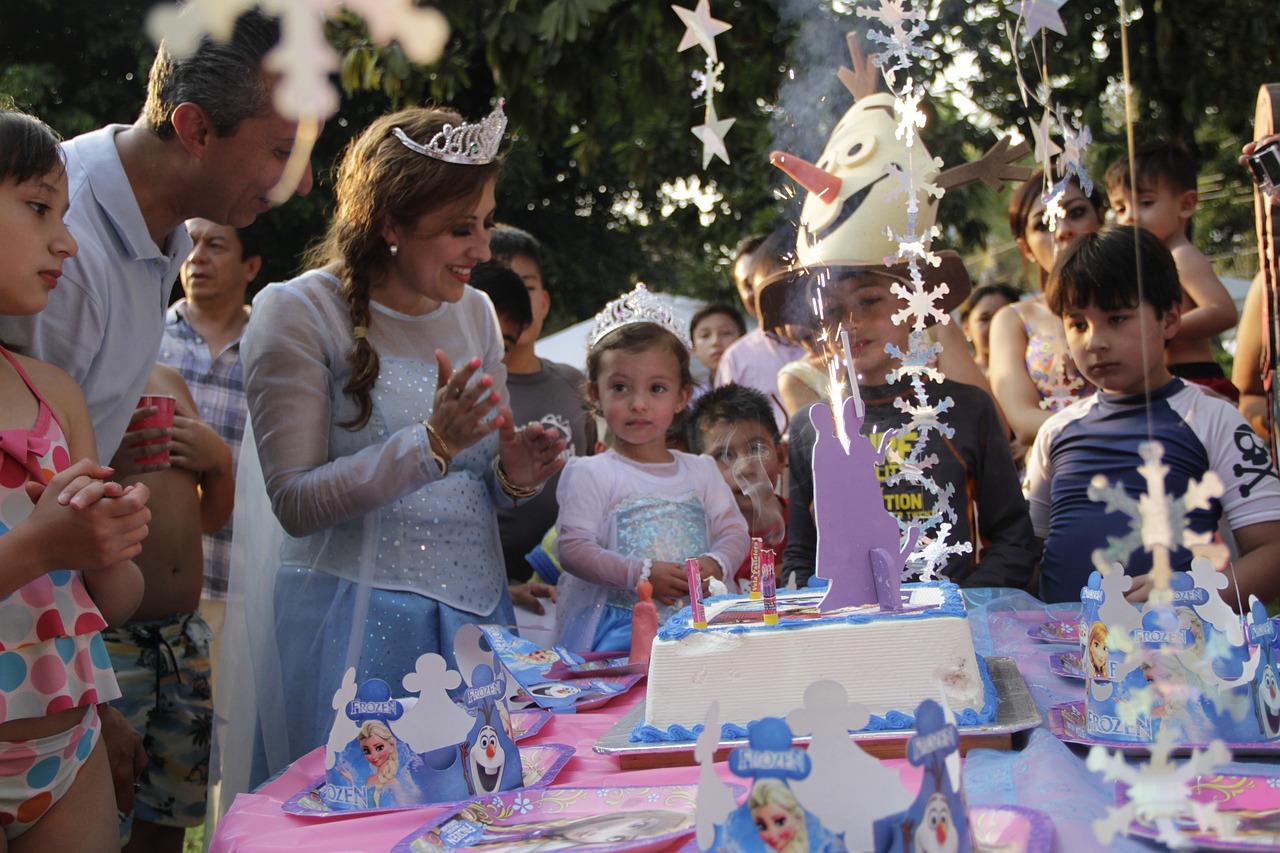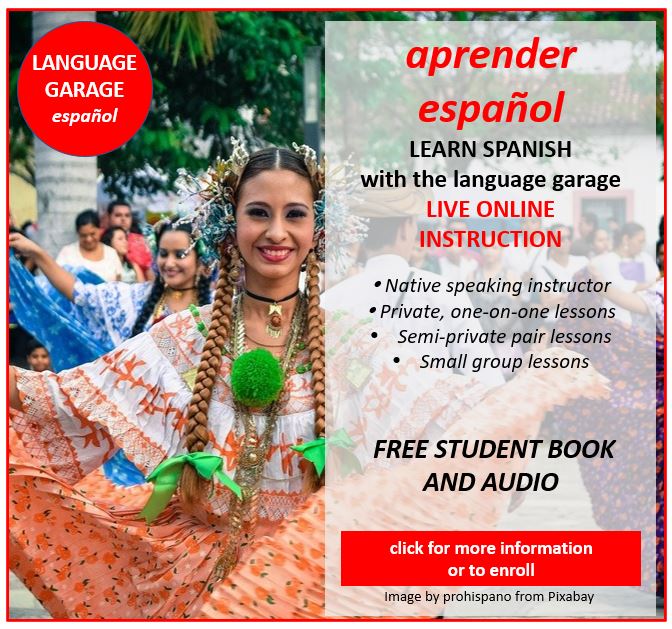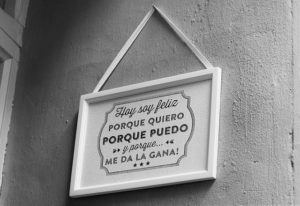Spanish Family Terms: La familia
In this post, we’ll learn Spanish family terms so that you can build your Spanish vocabulary to talk about your familia family.
¿Tienes una familia grande? Do you have a big family?
First, let’s build your Spanish vocabulary by starting with some basic Spanish family terms: la madre, la mamá mother; el padre, el papá father; un hermano brother; una hermana sister; una hija daughter; un hijo son, los padres parents; los hijos, los niños children
- Tengo una familia grande/pequeña.
I have a big/small family. - Mi madre es doctora. Mi padre es profesor.
My mother is a doctor. My father is a teacher.
- ¿Tienes/Tiene hermanos o hermanas?
Do you have brothers or sisters? - Tengo una hermana mayor y un hermano menor.
I have one older sister and one younger brother. - Tengo tres hermanos.
I have three brothers. - Tengo dos hermanas.
I have two sisters. - Soy hijo único. / Soy hija única.
I am an only child. - ¿Tienes / Tiene hijos?
Do you have any children? - Tenemos un hijo y una hija.
We have a son and a daughter. - ¿Quién es el mayor/el menor de tu/su familia?
Who is the oldest/youngest in your family?
Esta es mi tía. This is my aunt.
Now let’s build your Spanish vocabulary further by looking at some extended Spanish family terms: los parientes relatives; los abuelos grandparents; la abuela grandmother; el abuelo grandfather; un nieto grandson; una nieta granddaughter; una tía aunt; un tío uncle; un primo, una prima cousin; una sobrina niece; un sobrino nephew.
- ¿Con qué frecuencia ves a tus parientes?
¿Con qué frecuencia ve a sus parientes?
How often do you see your relatives? - ¿Dónde viven tus/sus abuelos?
Where do you grandparents live? - Mi abuela todavía trabaja, pero mi abuelo está jubilado.
My grandmother is still working, but my grandfather is retired. - Tenemos tres nietos: un nieto y dos nietas.
We have three grandchildren: one grandson and two granddaughters. - Mi tía y mi tío viven cerca de nuestra casa.
Mis tíos viven cerca de nuestra casa.
My aunt and uncle live near our house. - Tengo muchos / un montón de primos.
I have a lot of cousins. - Mi sobrina acaba de empezar la universidad.
My niece just started university. - Tengo cuatro sobrinos.
I have four nephews.
Spanish Vocabulary Related to Marriage
Now let’s learn some Spanish vocabulary related to marriage. Some key vocabulary to know is: la esposa, la mujer wife; el esposo, el marido husband; casarse to get married; divorciarse to get divorced; soltero, soltera single/unmarried. Let’s see some examples.
- ¿Estás/Está casado o soltero?
¿Estás/Está casada o soltera?
Are you married or single? - ¿A qué se dedica tu/su esposa/esposo?
What does your wife/husband do for a living? - ¿Cuándo te casaste? / ¿Cuándo se casó?
When did you get married? - Llevamos veinte años de casados. Nuestro aniversario de bodas es este fin de semana.
We’ve been married for twenty years. Our wedding anniversary is this weekend. - Mi esposa está embarazada. En dos meses vamos a tener un bebé.
My wife is pregnant. We’re having a baby in two months. - Mis padres están divorciados.
My parents are divorced.
Tenemos un bebé. We have a baby.
Next, let’s learn some Spanish vocabulary to talk about things related to families: un novio boyfriend; una novia girlfriend; un bebé baby; embarazada pregnant; adoptar to adopt; nacer to be born; muerto, muerta dead; vivo, viva alive; el padrastro stepfather; la madrastra stepmother; un hijastro stepson; una hijastra stepdaughter.
- ¿Cómo se llama tu/su novio/novia?
What is your boyfriend’s/girlfriend’s name? - Vamos a adoptar un hijo.
We’re going to adopt a child. - Fui adoptado/adoptada.
I was adopted. - ¿Cuándo nació tu/su hijo/hija?
When was your son/daughter born? - Mi abuela está viva, pero mi abuelo está muerto.
My grandmother is alive, but my grandfather is dead. - Tengo una buena relación con mi padrastro/madrastra.
I have a good relationship with my stepfather/stepmother. - Mi hijastra/hijastro vive con nosotros.
My stepdaughter/stepson lives with us. - Mi familia tiene un perro y un gato.
My family has a dog and a cat.
Mi familia política: My inlaws
And finally, here are some more Spanish vocabulary words you can use to talk about your extended family: la suegra mother in law; el suegro father in law; la nuera daughter in law; el yerno son in law; la cuñada sister in law; el cuñado brother in law; el padrino godfather; la madrina godmother; los padrinos godparents; el compadre godfather, the godfather of my child; la comadre godmother, the godmother of my child; el ahijado godson; la ahijada goddaughter.
- Mi suegra y yo tenemos una buena relación.
My mother in law and I have a very good relationship. - Mi suegro es muy serio.
My father in law is very serious. - Mis cuñadas son muy entrometidas.
My sisters in law are very nosy. - Voy a tener dos ahijados.
I’m going to have two godchildren.
Learn Spanish with the Language Garage!
We hope you’ve enjoyed growing your Spanish vocabulary by learning some Spanish family terms. If you’d like to learn more, check out our other posts on Spanish language, culture, and more. If you’re looking for convenient and affordable live Spanish lessons with a real teacher, visit The Language Garage. Our lessons are affordable and fun, and they’re given online in a virtual classroom, so it doesn’t matter where you live or work – we can come to you. We have flexible options, with a free trial so that you can decide if there’s a fit. Check us out!
Image by Jonathan Olguin from Pixabay






